Researchers may have developed a new test that can easily identify prion diseases—a group of diseases that includes “Mad Cow” disease—in a new study. The test may also have implications for identifying beta-amyloid proteins in Alzheimer’s disease.
According to Johns Hopkins Medicine, prions are a type of protein that causes other proteins in the brain to fold, leading to certain rare diseases like Creutzfeldt-Jakob disease (CJD).
It’s also possible that prions are linked to Alzheimer’s disease. Some recent scientific discussions have centered around the idea that both beta-amyloid and tau proteins are prions.
“Prion diseases are rare, but there are many mis-folded protein-based diseases, which affect millions of people, that are also very poorly understood,” Ronald Zuckermann, senior scientist at Berkeley Lab’s Molecular Foundry and a researcher on the study, said in a news release.
The new method was outlined by researchers at Lawrence Berkeley National Laboratory in a study published in PLOS One, and singles out prion proteins in body fluid samples. The researchers tested this in animals, and concluded they were one step closer to establishing a noninvasive prion detection test in humans.
They developed beads out of peptoids, which are artificial compounds designed to imitate peptides, or amino acid chains that make up proteins. When these peptoid beads are added into a liquid, such as a body fluid sample, they latch onto misfolded proteins or prions, but avoid the normal proteins.
“It’s like Velcro,” Michael Connolly, senior scientific engineer at Berkeley Lab’s Molecular Foundry, said in the news release, explaining that misfolded proteins have binds that attach to peptide beads.
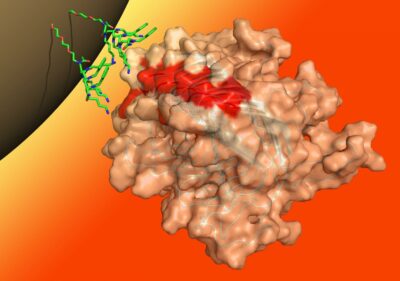
Photo: Peptides (green) bind to a prion protein aggregate (binding site in red). Courtesy of Ron Zuckermann/Berkeley Lab
The misfolded proteins can then be pulled out of the sample and go through a misfolded protein assay (MPA) test.
The researchers note the findings have far-reaching implications for a range of diseases that involve prions—and even possibly for Alzheimer’s disease, as their results showed the peptoid beads bonded with beta-amyloid proteins as well.
“Our peptoid beads have the ability to detect the misfolded proteins that act as infectious agents, so it could have a significant impact in the realm of prion diseases,” Zuckermann said.
“We have also shown that [the test] can seek out the large aggregated proteins that are the disease agents in Alzheimer’s and Parkinson’s diseases, among others,” he added.

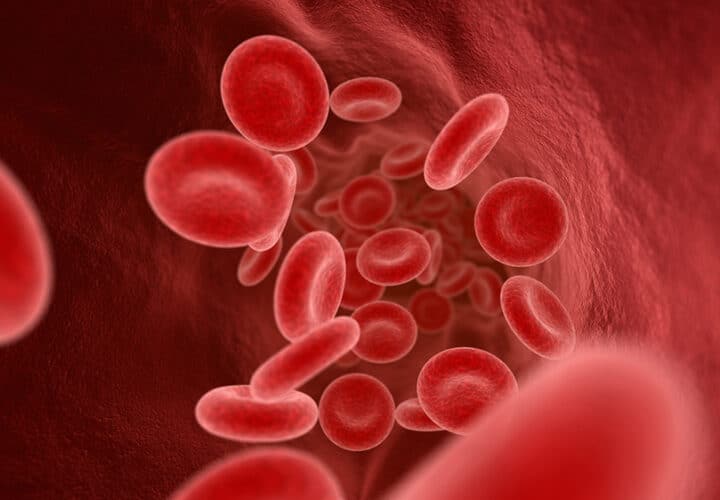
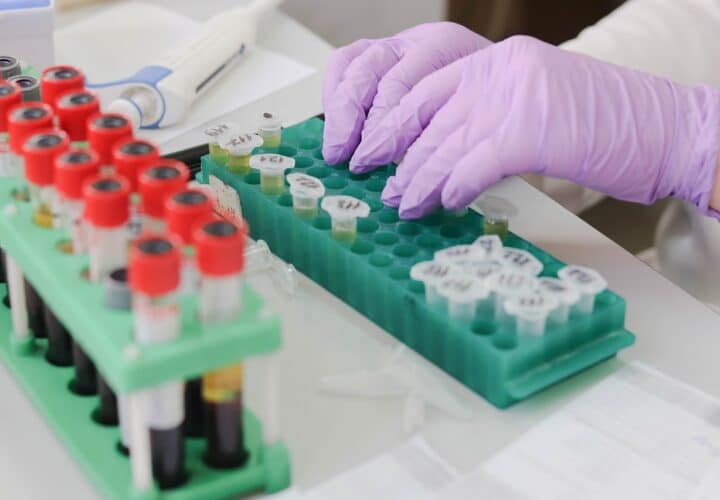

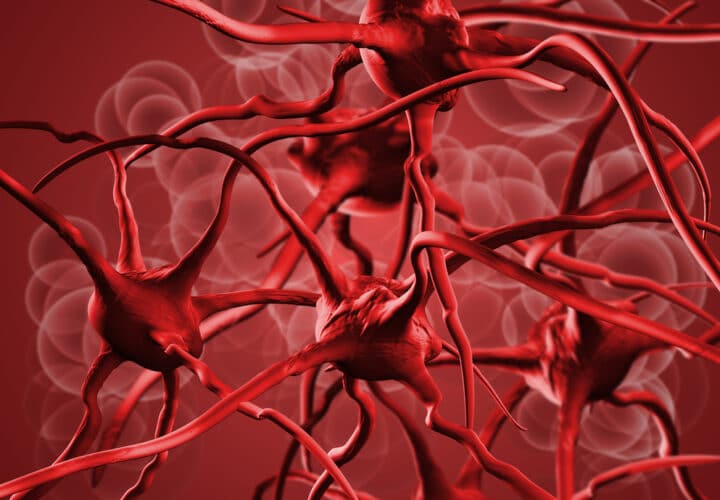
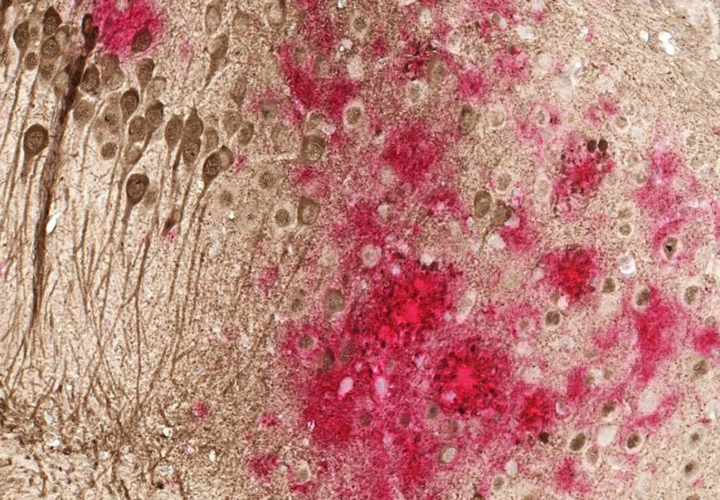
Might these beads also be a treatment for prion diseases? That is, finding a way to safely and effectively deploy the beads into the body or CSF to collect prion-induced protein tangles that can be isolated and removed from the body/brain.